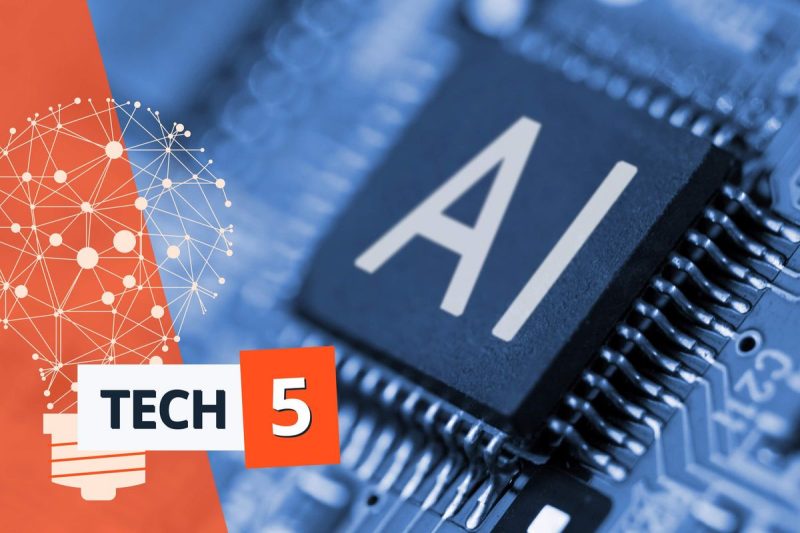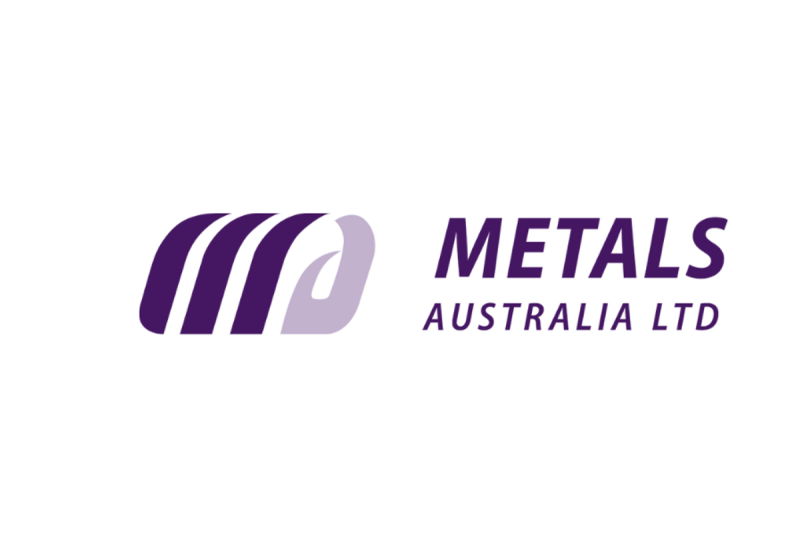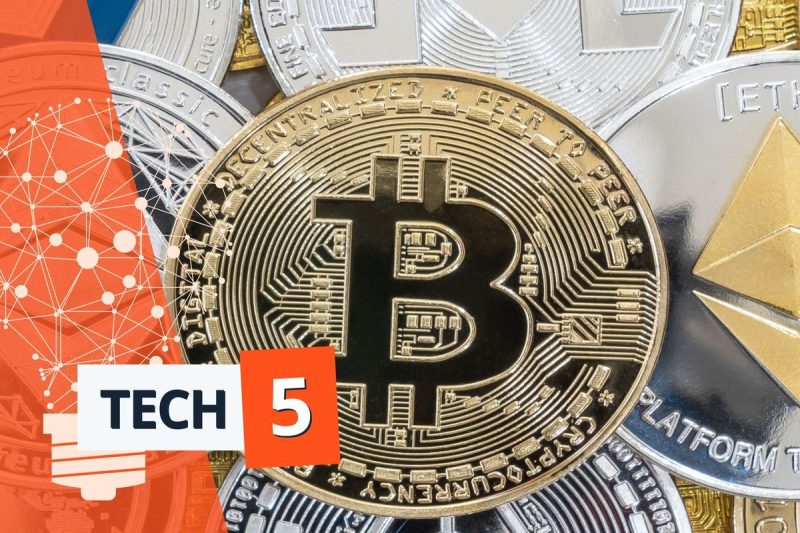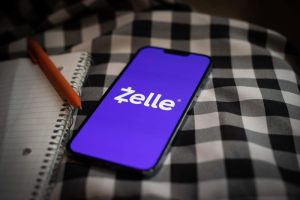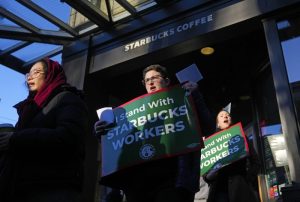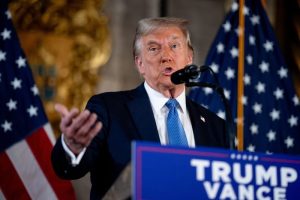Tech 5: OpenAI Releases “Reasoning” AI Model, Google Goes to Court in Antitrust Case
Tech stocks rallied this week on the back of interest rate cut expectations in the US.
Meanwhile, OpenAI released a new artificial intelligence (AI) model that’s rumored to be capable of advanced reasoning skills, and Apple’s (NASDAQ:AAPL) unveiling of its latest products failed to drum up investor enthusiasm.
Elsewhere Bitcoin passed US$60,000, and Google (NASDAQ:GOOGL) is heading back to court, this time to defend itself from accusations that it used its power to dominate the ad tech space.
1. Wall Street ends week on a high note
Wall Street was quiet on Monday (September 9) after Friday’s (September 13) employment report left investors wondering if the US Federal Reserve will issue aggressive rate cuts when it meets from September 17 to 18.
The Nasdaq Composite (INDEXNASDAQ:.IXIC) opened a modest 0.88 percent ahead of Friday’s close. The S&P 500 (INDEXSP:.INX) also opened higher, 0.62 percent ahead of Friday’s close.
The indexes saw gains of 0.29 and 0.53 by the day’s end, respectively.
Markets were equally subdued on Tuesday (September 10) as traders awaited the midweek release of US inflation data for August, as well as the debate between presidential candidates Donald Trump and Kamala Harris. All indexes dipped in midday trading, with the Nasdaq Composite falling the most, 1.32 percent below its opening price; it closed flat.
Wednesday’s US consumer price index (CPI) report shows the index for all items excluding food and energy increased 0.3 percent in August compared to 0.2 percent in July, an indication that inflation is increasing.
However, for the 12 months ended in August, the all-items index rose by 2.5 percent, its smallest increase since February 2021, suggesting that prices are rising at a slower pace. The mixed message led to a brief dip across the board, but a rally in tech stocks, led by a 7 percent rally in NVIDIA’s (NASDAQ:NVDA) share price.
NVIDIA performance, September 9 to 13, 2024.
Chart via Google Finance.
Thursday’s (September 12) release of the August producer price index (PPI) shows wholesale prices rose 0.2 percent for the month, in line with Dow Jones estimates. The core rate — the producing price of everything other than food and energy — followed the CPI core rate, rising 0.3 percent, slightly more than the 0.2 percent forecast.
Initial unemployment claims were also ahead of estimates at 230,000 for the week ended on September 7.
With the final inflation report before the Fed’s meeting next week in the books, all major indexes experienced notable gains. The Nasdaq Composite advanced by 1 percent, while the S&P 500 saw growth of 0.75 percent. The Russell 2000 was the winner of the day, advancing by 1.22 percent at the closing bell.
The market surged further on Friday after reports from the Financial Times and Wall Street Journal fueled optimism that the Fed may implement a rate cut of 50 basis points after it meets next week.
Leading the charge was the Russell 2000, which ended the day 2.49 percent higher.
2. Bitcoin price ends week above US$60,000
Bitcoin was stable over the weekend, holding steady in the US$54,000 to US$55,000 range.
As the trading week commenced, the cryptocurrency was pushed higher by events like the CPI reading and the presidential debate. It peaked on Monday at US$57,635 at around 6:00 p.m. EDT.
Broker Bernstein said in a Monday market report that a Trump victory could result in Bitcoin’s price reaching a US$90,000 valuation, compared to a price range of between US$30,000 and US$40,000 if Harris wins.
Ahead of Tuesday’s debate, Bitcoin advanced 1.59 percent during market hours, only to see a retreat to US$56,247 overnight after neither candidate mentioned cryptocurrencies. Blockchain betting site Polymarket had assigned a 19 percent chance that Trump would talk about Bitcoin, compared to a 9 percent chance that Harris would.
A poll conducted by CNN shows 63 percent of viewers believe that Harris outperformed Trump — a shift from when Trump faced off against President Joe Biden. With a Trump victory looking less solid and the future regulatory environment still uncertain, Bitcoin’s price retreated further to US$55,901 on Wednesday (September 11) morning.
Since Wednesday’s PPI data release, Bitcoin has experienced volatility, but maintained an upward trajectory, breaking above US$58,200 for the first time since September 1 in the hours before midnight on Thursday. It went on to trade between US$57,600 and US$58,300 during market hours and held steady overnight.
Bitcoin rallied alongside the stock market on Friday, breaking above US$60,000 for the first time since August 29. At the time of this writing, it was trading for US$60,557.20, marking a 4.3 percent increase from its price 24 hours ago and a 13.7 percent rise over the past seven days.
3. OpenAI launches rumored ‘Strawberry’ model
It was a busy week for OpenAI, the world’s most valuable startup. On Tuesday, the Information reported that sources working with the company’s newest AI model, nicknamed Strawberry, said it would be released in two weeks.
Reuters first reported on the model, which was designed to deliver advanced reasoning capabilities, in July.
Two days later, OpenAI announced a preview of OpenAI o1, the first in a series of AI models that will “spend more time thinking before they respond.” These models will be able to solve more complex problems in math, science and coding.
In a press release, the company compared OpenAI o1 to its most recently released AI model, GPT-4o.
“In a qualifying exam for the International Mathematics Olympiad, GPT-4o correctly solved only 13 percent of problems, while the reasoning model (OpenAI o1) scored 83 percent,’ OpenAI said.
While testing its coding abilities, the company also claimed that the software reached the 89th percentile in the Codeforces competition. Detailed reports of trials are posted on OpenAI’s website.
While OpenAI o1 demonstrates AI reasoning capabilities, the software’s inability to browse the web for information limits its utility for consumers compared to ChatGPT. “But for complex reasoning tasks this is a significant advancement and represents a new level of AI capability,” the company explained.
Also this week, Bloomberg reported that OpenAI is looking to raise US$6.5 billion via a new fundraising endeavor that would increase its value to US$150 billion if successful.
4. Google faces off against DOJ in antitrust trial
Google’s second antitrust trial in the US this year kicked off in Virginia on Monday.
This trial relates to charges filed by the US Department of Justice (DOJ) accusing the company of “anticompetitive and exclusionary conduct” to control advertising tech tools in January 2023.
Prosecutors said Google used its influence to control competitors and customers, and dominate the online advertising ecosystem. “Google’s isn’t here because they are big,” DOJ lawyer Julia Tarver Wood said in opening statements Monday, according to the Wall Street Journal. “They are here because they use that size to crush competition.”
Google is arguing that the DOJ’s case is based on a narrow view of advertising on the internet, and says it has contended with competition for ad tech space from companies such as Comcast (NASDAQ:CMCSA), Microsoft (NASDAQ:MSFT), Walmart (NYSE:WMT), Meta Platforms (NASDAQ:META) and Disney (NYSE:DIS).
Shares of Google were down 2.86 percent before noon on Monday.
The case will likely not be resolved for several months, but if the presiding judge sides with the DOJ, the company may be forced to sell off Google Ad Manager. Google advertising earned the company US$64.62 million in Q2.
5. Apple fans underwhelmed by iPhone 16
Apple’s “It’s Glowtime” event was held on Monday at the company’s headquarters in Cupertino, California.
The firm unveiled its newest lineup of iPhones: the iPhone 16, 16 Plus, 16 Pro and 16 Pro Max, all powered by an Apple A18 chip, which was developed with Softbank Group (TSE:9984) subsidiary Arm’s V9 chip design.
The company also introduced its newest Apple Watch Series 10, along with updates to the Apple Watch Ultra 2 and a new lineup of AirPods. In addition, it added features to its AirPods Pro 2 series, including hearing protection and hearing aid software, the first over-the-counter hearing aid to be authorized by the US Food and Drug Administration.
The product launch itself was largely thought to be “underwhelming,” with few changes made to the iPhone’s hardware apart from a new Camera Control button that enables users to control more features in the camera app. Critics also complained about the limited access to Apple Intelligence, which will only become available in beta to US iPhone 15 Pro, 15 Pro Max or 16 users — as well as select iPad and Mac models — in October.
Hours after the ‘It’s Glowtime’ event, Apple was forced to contend with the release of Huawei Technologies’ newest phone, the Mate XT tri-foldable, which comes with an AI assistant, hours after Apple’s event. Strict data privacy restrictions in China prevent Apple from rolling out Apple Intelligence in Mainland China.
Apple was dealt another blow on Tuesday, when the European Court of Justice ruled that it must pay 13 billion euros in back taxes to Ireland, concluding a 10 year court battle that began when the European Commission accused Ireland of giving Apple illegal tax benefits and ordered to country to collect.
Despite the ups and downs, Apple shares ended the week up 0.71 percent at US$222.50.
Securities Disclosure: I, Meagen Seatter, hold no direct investment interest in any company mentioned in this article.
